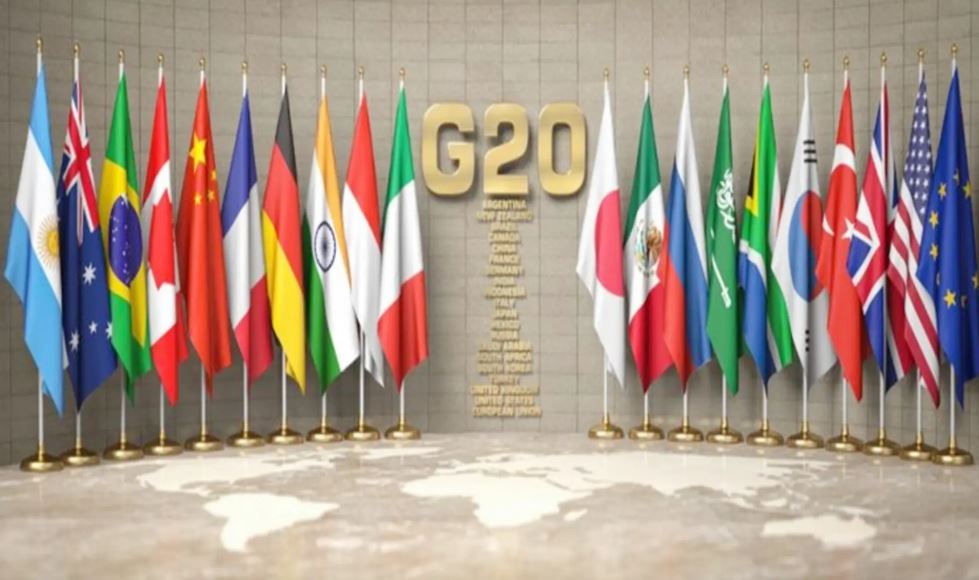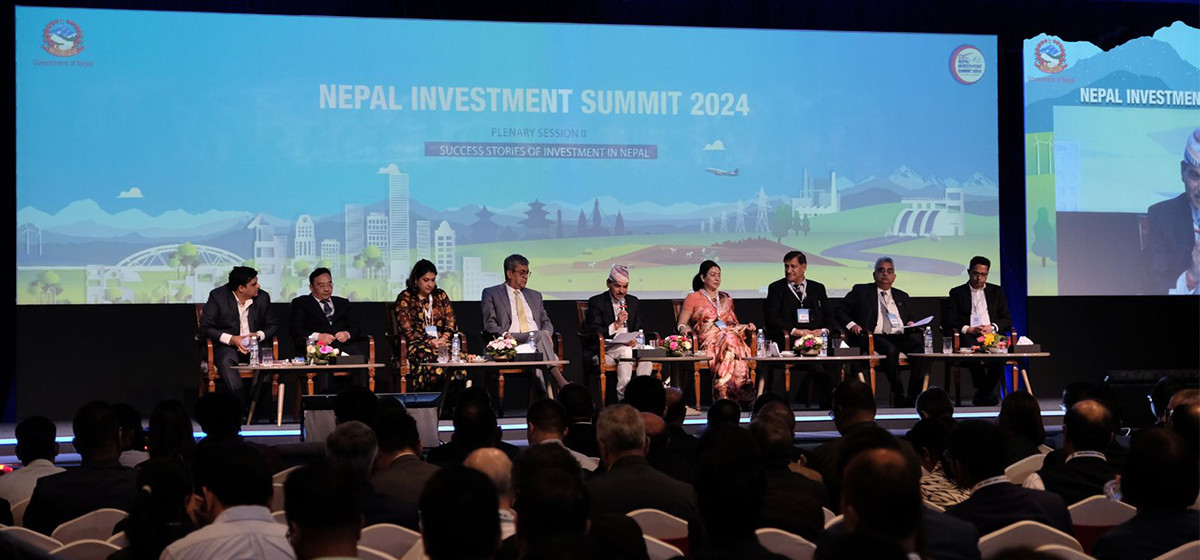
OR
Will the G-20 succeed in overcoming the global challenge?
Published On: September 7, 2023 05:15 PM NPT By: SHREE RAM SUBEDI

KATHMANDU, Sept 7: The G-20 summit, a gathering of the world's leading economies, is set to commence in New Delhi, India, starting this Saturday for a two-day event.
During this meeting, participants are expected to engage in discussions covering a range of pressing issues. These include efforts to address supply chain disruptions stemming from the Russia-Ukraine conflict, strategies to boost global trade, advancements in green development initiatives, enhancing food security, and promoting sustainable agricultural sector development. With the G-20 representing 60 percent of the world's population and accounting for 85 percent of the global gross domestic product, the outcomes of these deliberations hold significant global implications.
Geopolitical tensions have heightened due to the ongoing Russia-Ukraine conflict, which has persisted for over a year. Member countries of the G-20 are divided in their stance toward this war. While the United States and its allies have strongly criticized Russia and imposed various sanctions, other nations, including China and the host country, India, have refrained from openly condemning the conflict. Notably, Chinese President Xi Jinping will be absent from the summit for the first time, with Chinese Prime Minister Lee Kuan representing the nation. Additionally, the absence of Russian President Vladimir Putin further complicates the dynamics, potentially jeopardizing the issuance of a joint statement, which may discomfort the host country, India.
The G-20, originally conceived to address issues such as good governance, economic development, climate change, green technology, and mutual trust, faces skepticism regarding its ability to achieve its intended progress when embroiled in global security debates, including the Ukraine crisis. Some argue that the concerns and interests of the Global South are being overlooked within the group, while certain economists advocate for the group to champion the call for a global tax on wealthier nations in light of rising global inequality.
The White House has announced that American President Joe Biden intends to raise the topic of World Bank reforms and the necessity for multilateral development banks to enhance cooperation in climate finance during the summit. Japanese Prime Minister Fumio Kishida has highlighted discussions on digital and food security matters, while India has emphasized the importance of establishing a global framework to regulate crypto-currency assets.
Climate change and the green transition are poised to take center stage at the upcoming G-20 summit.
As global temperatures have steadily risen in recent years, mounting pressure is compelling the group to make concrete decisions addressing the escalating challenge of climate disasters. Earth's temperature has increased by 1.2 degrees Celsius since the dawn of the industrial revolution, resulting in a surge in natural disasters such as heat waves, droughts, wildfires, floods, and landslides worldwide. With the United Nations Climate Conference (COP-28) scheduled for the year's end in Dubai, the active involvement of the G-20 is imperative to confront this critical issue.
Should the Delhi summit proceed with ambitious plans in this regard, it will enable the group to confidently engage in COP-28, sending a resounding message to the world for more concerted climate action.
Originally established in 1999 during the Asian financial crisis, the G-20 has historically deliberated on global financial and economic matters. Initially attended by finance ministers and central bank governors, the group's annual meetings have included heads of state from member countries since 2009, with a focus on international economic cooperation. Notably, it made significant decisions, such as allocating four trillion US dollars, reforming the financial system, and mitigating disruptions in the business sector in response to the global financial crisis of 2007. Since then, the group's annual meetings have addressed a spectrum of issues, ranging from economic and financial matters to broader global challenges and problems.
During the 2016 meeting held in Hangzhou, China, the then-US President Barack Obama and Chinese President Xi Jinping formally declared their commitment to the Paris Agreement on Climate within the framework of the G-20. This forum includes competing superpowers like the US, China, Russia, and the European Union, and tackles a wide array of global concerns. In contrast, the G-7 consists exclusively of developed nations, while the G-20 is viewed as a representation of the entire world, encompassing both developed and developing countries from Asia, Latin America, and Africa.
You May Like This

Amazon confirms two employees in Italy have contracted coronavirus
WASHINGTON, March 2: Amazon.com Inc said late on Sunday that two employees in Milan, Italy, have contracted the coronavirus and... Read More...

Smugglers’ go-downs near customs office
SIRAHA, March 16: On March 10, a team from the District Police Office (DPO), Siraha, arrested a truck with an... Read More...

Govt restricts Chand group’s activities
KATHMANDU, March 13: The government on Tuesday outlawed the ‘political activities’ of the semi-underground Communist Party of Nepal led by... Read More...



Just In
- Home ministry introduces online pass system to enter Singha Durbar
- MoLESS launches ‘Shramadhan Call Center’ to promptly address labor and employment issues
- Biratnagar High Court orders Krishna Das Giri to appear before court within one month in disciple rape case
- Ilam by-election update: UML candidate Suhang maintains lead
- Korean embassy and NTB jointly commemorate 50th anniversary of Korea-Nepal diplomatic relations
- SC administration files contempt of court case against SidhaKura
- Second day of Nepal Investment Summit to feature diverse discussions
- Ilam-2 by-election: UML’s Nembang leads by 4,523 votes













Leave A Comment